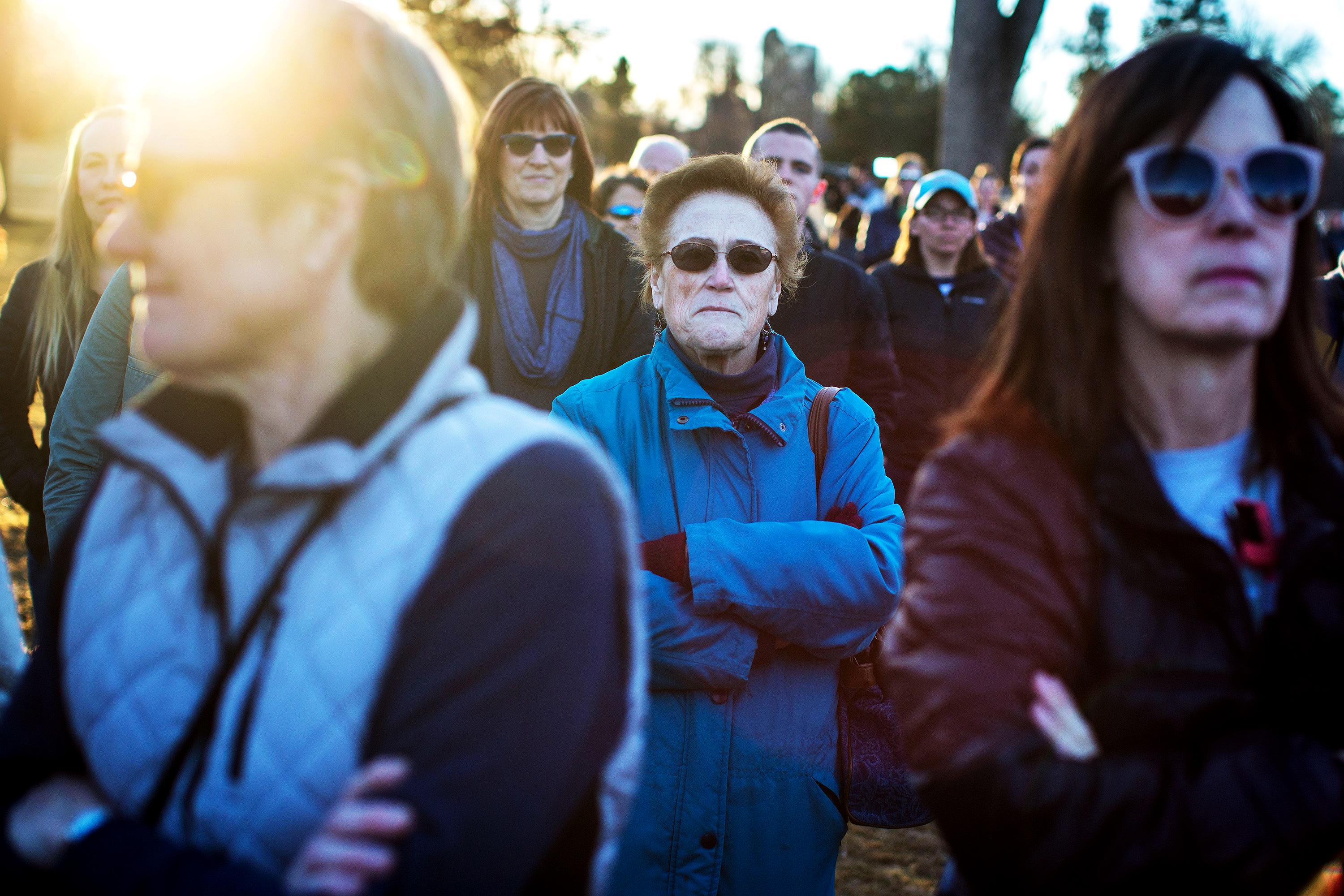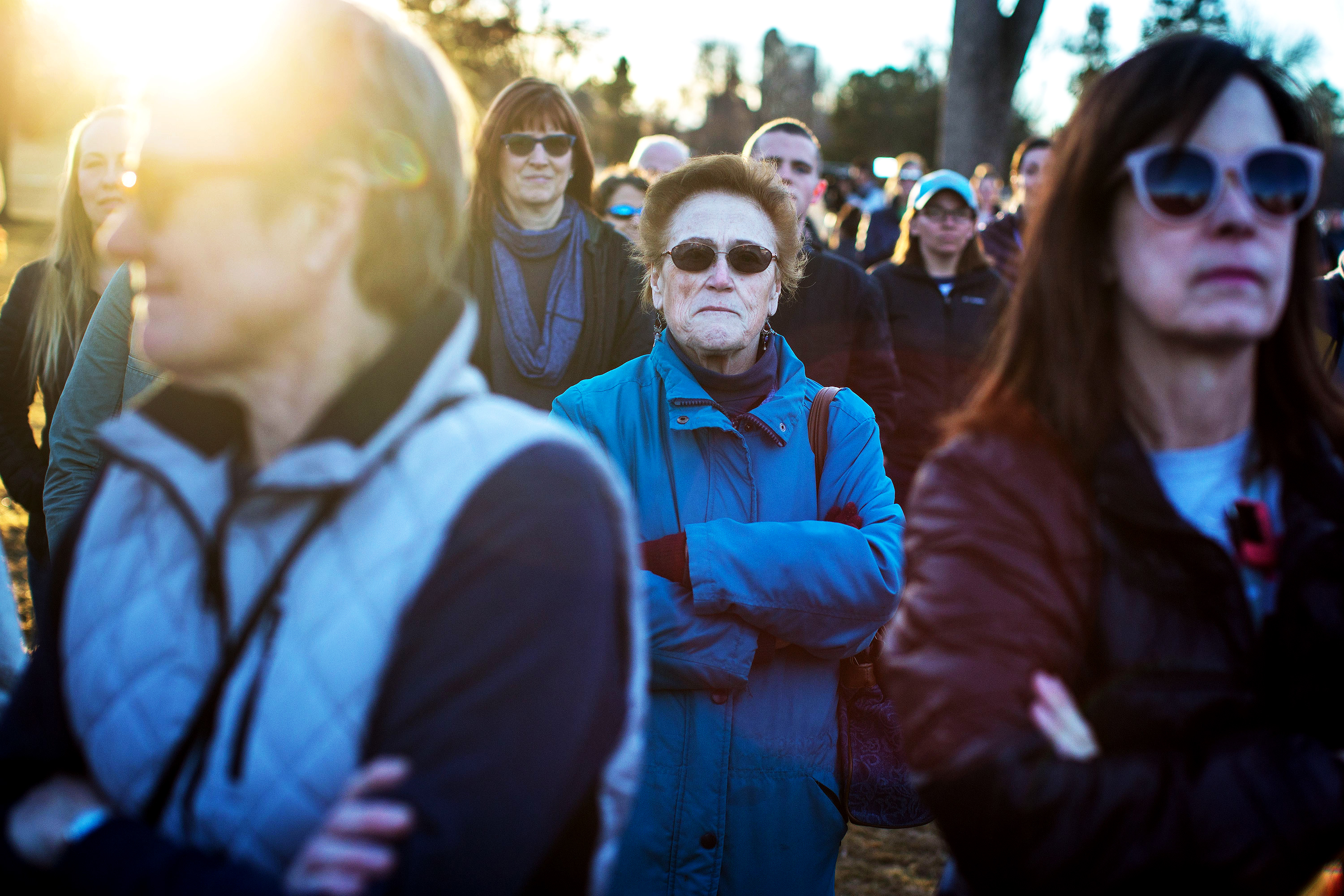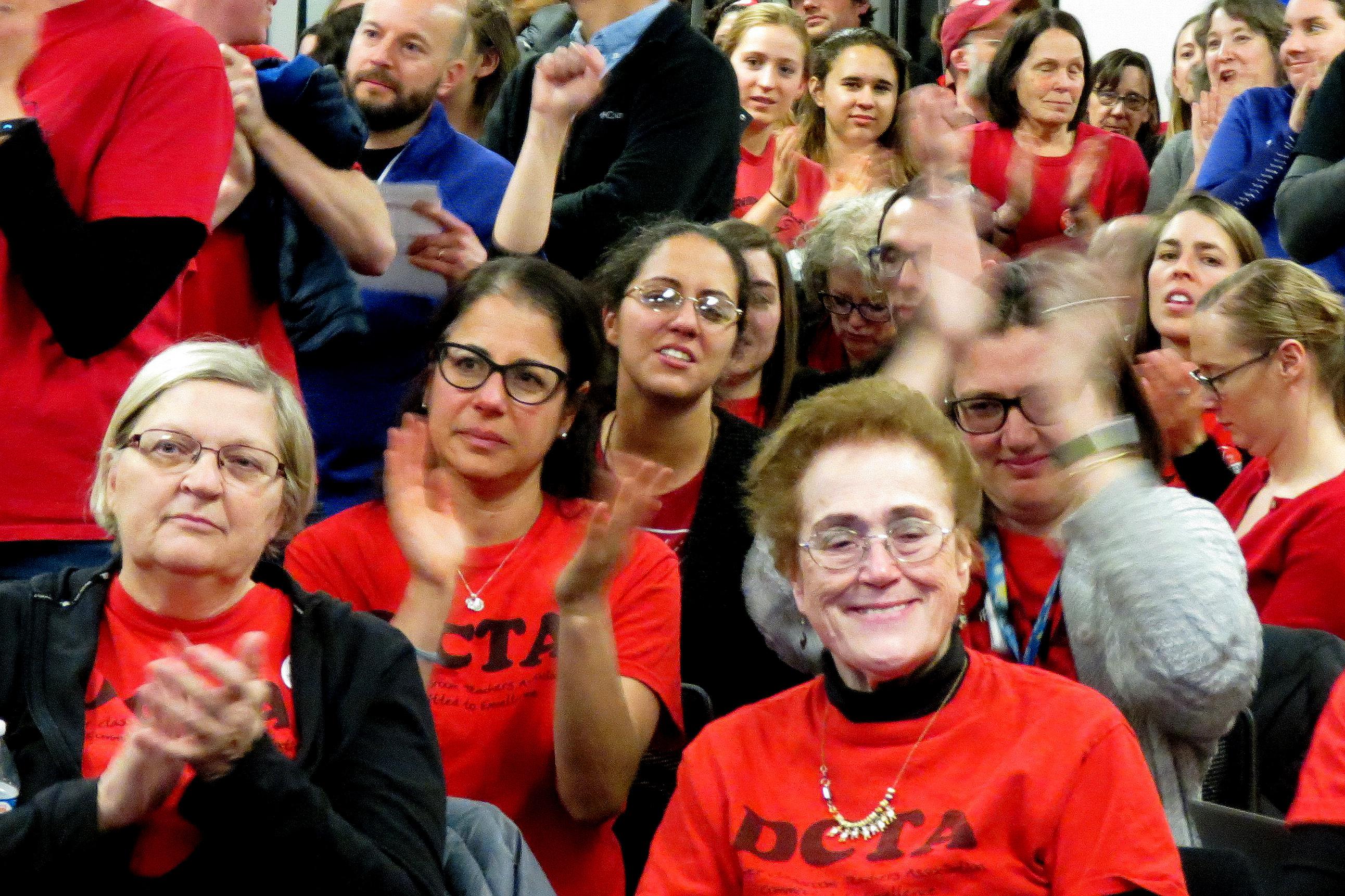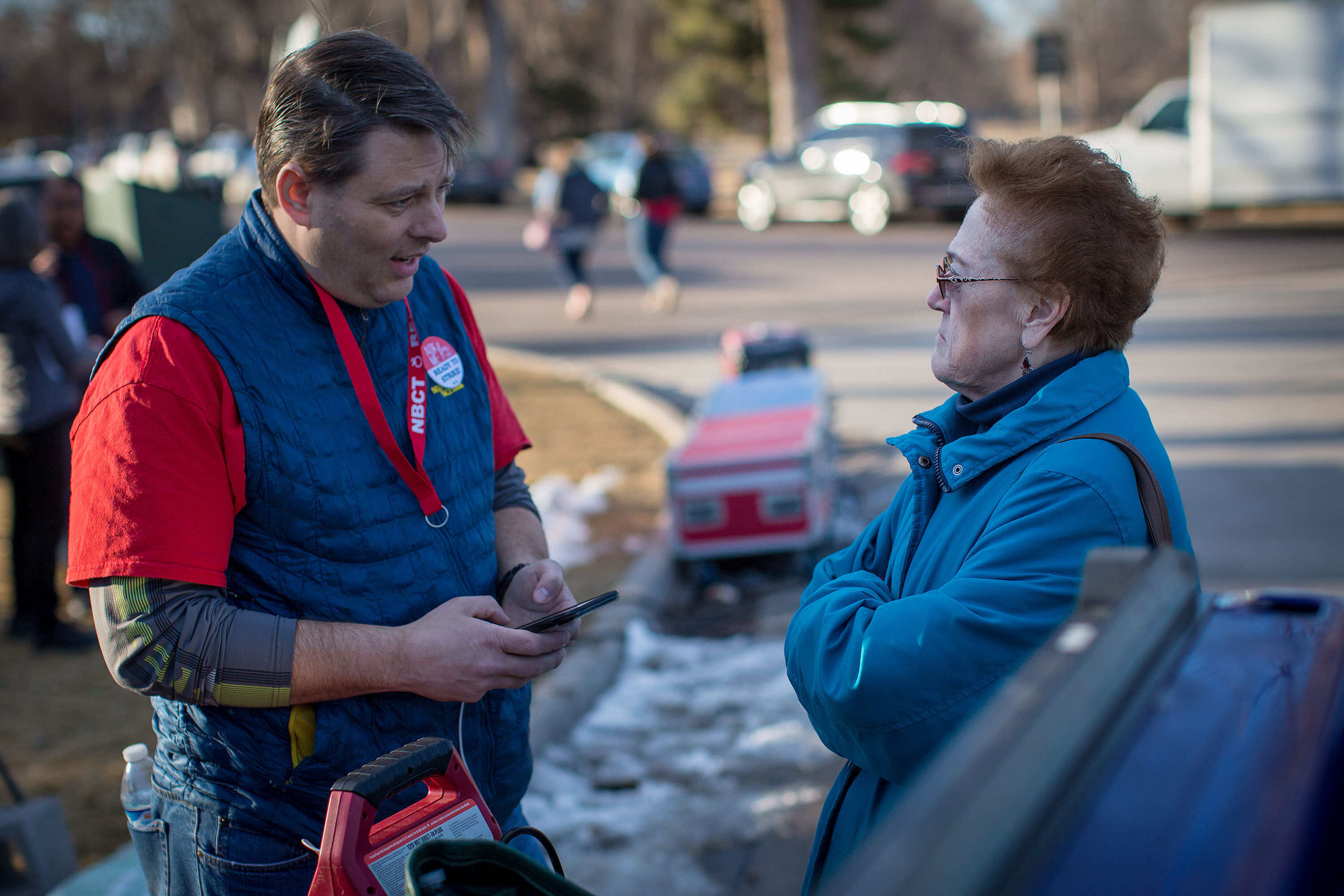

Of all the teachers that clapped, chanted and snapped their fingers through hours of negotiations between Denver Public Schools and the union and then the strike, one stood out. This math teacher from Emily Griffith High School is unique because it was her third strike in 50 years.
Seventy-two-year-old Kathleen Braun took part in the 1969 and 1994 Denver teacher strikes. Her first strike lasted 14 days, back when she was a second year teacher at the age of 23.
“I had no money and I didn't know whether I could pay my rent,” she said.
Teacher pay in the ‘60s was $5,500 a year. They wanted $7,500.
“The good old boys, you know, ran things,” she said, in reference to the administrators who reflected the culture of the time. “They really thought that most teachers were either women who returned to work after their children were in school and were making ‘vacation money’ or single teachers who hadn't gotten married yet, but we would leave when we got married and had children because that's what we did. And so they didn't think we would stay around and make a career of it.”

It was the era of the Vietnam War and civil rights protests and Braun recalled the strike blended in with the other movements. Fifty years later, she seemed stunned to be back on the picket line.
“I would have thought by now we would have made more progress, but we haven't, we're still fighting for the same kinds of equity,” she says.
All three of the strikes, Braun pointed out, were mentally, emotionally and physically exhausting. The temperature on the first day of the 2019 strike was below freezing and taxed the will of the teachers. But then a car would honk, or a community member would show up with water, a hot drink or fruit.
“All the things that just buoy the spirit, but still, you're walking up and down and you're asking yourself over and over and over again, ‘is this going to work? Are they going to come to an agreement that we can all live with that's going to benefit our kids?’”
This time around, Braun put that veteran experience to use and counseled her younger colleagues to dress warm, wear good walking shoes and to take their classroom plants home with them.
“Don't leave them in the room ‘cause you don't know how long you're going to be gone and there'll be nobody there to water them,” she exclaimed.

But she also talked with younger teachers about how difficult the strike would be emotionally. She began to see emotions crop up in other teachers on the picket line that she witnessed in the earlier strikes, like resentment and irritation toward teachers who didn’t join the line.
Braun said that was the hardest thing. In schools where everybody went on the picket line, it was an intense bonding experience. Teachers would become friends forever. In schools where some teachers stayed inside, those feelings can be hard to overcome.
“You paid a price and it's a high price, and they didn't and yet they get the same benefits,” she said. “It’s gut wrenching.”
In the 1994 strike, Braun’s husband didn’t earn a lot and she put her “whole family at risk” by walking out. On the picket line in 1969, her principal wrote on her evaluation that Braun was a striker and insubordinate.
This time around, Emily Griffith’s whole faculty came out, and Braun said she has a great principal. Emily Griffith principal David Daves said Braun played an integral role in faculty meetings where they talked about how the school would get through the labor impasse.

“She talked about us coming together and really talked about remaining united, not just with those that were striking, but with all of us in this, that were all in it together.”
For Braun, the latest Denver teacher strike didn’t make a difference to her take home pay — other than cost of living adjustments, she’s already reached the top level of the salary structure. Instead, she was on strike for someone else.
“It's those young teachers who are trying to decide whether they want to stay, whether they can afford to stay, the college kid or the high school kid who's thinking ‘boy I’d really love to be a teacher’ .... [but] can't afford to live on the money that teachers make.”
For Braun, this latest strike was more than just a disagreement over pay. She believes it’s about the dismantling of public education nationally. In the past decade, the public education has undergone many changes that some teachers call ‘experiments,’ such as pay-for-performance incentives, a rapid expansion of charter schools and other structural changes. For Braun, the strike is a call to focus back on all children, in all schools.
“This strike meant a lot. It's very, very important to our kids and to our society," Braun said.

Once the strike was over, Braun stood resolutely in a bright blue jacket in the chill alongside a few dozen die-hards in Denver’s City Park. She said the strikes have made her more socially liberal than she was, more focused on social justice and equity of opportunity for all.
“It's surreal,” she said. “It's like I went to a different planet and now I'm back. It’s different. And I know I'm different because of it.”
Her students were happy to see her in class Friday. She gave out hugs if they wanted them — or a fist bump if they were gentle, “because I do have arthritis in my hands,” she said.
Braun will teach as long as she can. Her principal, David Daves, said she’s got a job as long as she wants it. “Everything that she talks about is, ‘how can we help the students?’” he said. It’s an attitude that’s reflected in how she muses about bonuses and incentives — one of the most contentious part of negotiations that led to the strike in the first place.
“I get a bonus every year, twice a year now because we have two graduations,” Braun said. “The kids come through, they've graduated, and they’ve succeeded at something they didn't think they could succeed at. I got to be a part of it and I get my hugs.”








